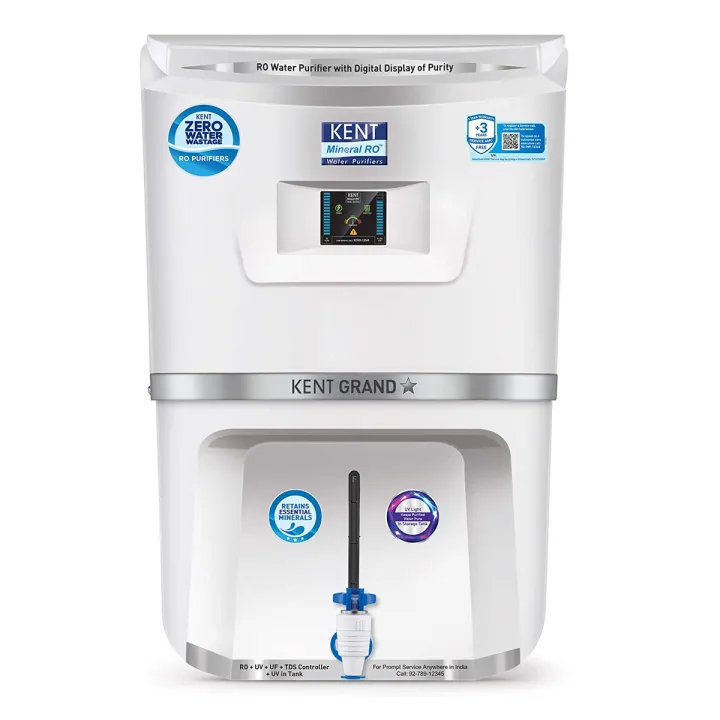Is Reverse Osmosis the Best Water Filter?
Make your choice accordingly!

In the quest for clean and safe drinking water, many homeowners turn to reverse osmosis (RO) as a potential solution. In this article, we will explore the merits and drawbacks of RO water filtration systems to help you make an informed choice regarding their suitability for your specific needs and preferences.
What Is Reverse Osmosis?
Reverse osmosis, often referred to as RO, is a cutting-edge water purification method. At its core, it’s a filtration process that employs a semi-permeable membrane to eliminate contaminants from water. This membrane acts like a molecular sieve, allowing only water molecules to pass while blocking larger particles and impurities.
Read more: Water Filter Price in BD
In a typical RO system, water is first pre-filtered to remove sediments and debris, then pressurized to drive it through the membrane. This process effectively removes minerals, heavy metals, bacteria, and most organic compounds to deliver exceptionally clean and pure water.
Although RO systems excel at purification, they have some downsides like water wastage and mineral removal, so their suitability depends on specific needs and preferences.
Pros of Reverse Osmosis
Reverse osmosis (RO) boasts numerous advantages when it comes to water purification. First and foremost, it’s renowned for its unparalleled ability to produce exceptionally clean and pure drinking water.
This is achieved by removing a wide spectrum of contaminants, including chlorine, heavy metals, fluoride, bacteria, and many other impurities. As a result, RO-treated water not only meets stringent safety standards but also tastes and smells significantly better.
RO systems also enhance the clarity and appearance of water, making it visually appealing. They are adaptable, with options for under-sink units or whole-house systems, to ensure access to purified water where needed.
Cons of Reverse Osmosis
Despite its effectiveness in purifying water, reverse osmosis (RO) has its share of drawbacks to consider.
One significant downside is the wasteful nature of RO systems. These systems produce two streams of water: purified “product” water and concentrated “reject” or wastewater. This can result in a substantial amount of water being discarded which might not align with water conservation goals.
Additionally, RO removes not only contaminants but also beneficial minerals like calcium and magnesium. While this isn’t a health concern, it can impact the taste and nutritional value of the water, which some people may find less appealing.
RO systems tend to have a slower filtration rate compared to other filtration methods, leading to a slower flow of water from the faucet. Lastly, RO systems typically require more maintenance, including regular filter replacement and potential sanitization to prevent bacterial growth.
Comparing Reverse Osmosis to Other Water Filters
#1 Activated Carbon Filters
Activated carbon filters are popular for their ability to remove common contaminants, such as chlorine, bad taste, and odors. However, they might not be as effective at eliminating certain minerals or bacteria compared to RO systems.
#2 UV Water Purifiers
UV water filters maximizes ultraviolet light to purify water by killing viruses and other contaminants. They are excellent at sterilization but don’t remove other contaminants physically.
#3 Ion Exchange Filters
These filters are great for removing specific minerals like calcium and magnesium but may not address a broad range of contaminants like RO systems do.
#4 Distillation
Distillation is a process through which water is heated to generate steam which is later condensed to liquid and fresh water. While it effectively removes impurities, it can be energy-intensive and slow.
When comparing RO to these alternatives, RO stands out for its comprehensive contaminant removal capabilities.
Is Reverse Osmosis the Best Choice for You?
Choosing whether reverse osmosis (RO) is the right fit for your water filtration needs involves weighing several key factors.
Firstly, consider your water quality. If your source water is laden with a multitude of contaminants or minerals, RO’s comprehensive purification might be the best solution. However, if your water quality is relatively good, a simpler and less costly filtration system may suffice.
Budget plays a pivotal role. RO systems can be more expensive upfront and entail ongoing maintenance expenses for filter replacements. Also, contemplate environmental concerns; RO systems can produce wastewater and remove beneficial minerals.
Ultimately, the decision depends on your unique circumstances, priorities, and the specific water-related challenges you face.
Final Words
Whether reverse osmosis (RO) is the ideal water filtration choice hinges on your water quality, budget, and environmental considerations. RO excels at comprehensive purification, making it an excellent option for areas with severe contamination issues.
Yet, its upfront and maintenance costs, potential wastewater generation, and removal of beneficial minerals warrant careful evaluation. To determine if RO is right for you, assess your specific water source, budget constraints, environmental values, and personal preferences.





